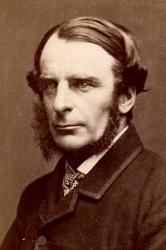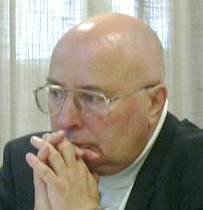Planning worship?
Check out our sister site, ZeteoSearch.org,
for 20+ additional resources related to your search.
- |
User Links
Search Results
DER TAG IST SIENER HÖHE NAH
Appears in 5 hymnals Composer and/or Arranger: Fritz Werner Tune Key: C Major Incipit: 13212 34554 56711 Used With Text: Kanto, ekzemple:
DER TAG IST SIENER HÖHE NAH
From You All Skill And Science Flow
Author: Charles Kingsley, 1819-1875 Meter: 8.6.8.6 Appears in 90 hymnals Used With Tune: DER TAG
From You All Skill And Science Flow
Der Tag ist seiner Höhe nah
Author: Jochen Klepper Appears in 3 hymnals Lyrics: 1 Der Tag ist seiner Höhe nah.
Nun blick zum Höchsten auf,
der schützend auf dich niedersah
in jedes Tages Lauf.
2 Wie laut dich auch der Tag umgibt,
jetzt halte lauschend still,
weil er, der dich beschenkt und liebt,
die Gabe segnen will.
3 Der Mittag kommt. So tritt zum Mahl,
denk an den Tisch des Herrn.
Er weiß die Beter überall
und kommt zu Gaste gern.
4 Er segnet dich in Dorf und Stadt,
in Keller, Kammer, Feld.
Was dir der Herr gesegnet hat,
bleibt fortan wohl bestellt.
5 Er segnet dir auch Korb und Krug
und Truhe, Trog und Schrein.
Ihm kann es keinen Tag genug
an Segensfülle sein.
6 Er segnet deiner Bäume Frucht,
dein Kind, dein Land, dein Vieh.
Er segnet, was den Segen sucht.
Die Gnade schlummert nie.
7 Er segnet, wenn du kommst und gehst;
er segnet, was du planst.
Er weiß auch, daß du’s nicht verstehst
und oft nicht einmal ahnst.
8 Und dennoch bleibt er ohn Verdruß
zum Segnen stets bereit,
gibt auch des Regens milden Fluß,
wenn Regen an der Zeit.
9 Sein guter Schatz ist aufgetan,
des Himmels ewges Reich.
Zu segnen hebt er täglich an
und bleibt sich immer gleich.
10 Wer sich nach seinem Namen nennt,
hat er zuvor erkannt.
Er segnet, welche Schuld auch trennt,
die Werke deiner Hand.
11 Die Hände, die zum Beten ruhn,
die macht er stark zur Tat.
Und was der Beter Hände tun,
geschieht nach seinem Rat.
12 Der Tag ist seiner Höhe nah.
Nun stärke Seel und Leib,
daß, was an Segen er ersah,
dir hier und dort verbleib. Topics: Glaube - Liebe - Hoffnung Mittag, Tägliches Brot Scripture: Deuteronomy 28:5 Used With Tune: [Der Tag ist seiner Höhe nah]
Der Tag ist seiner Höhe nah
Kanto, ekzemple:
Author: Albrecht Kronenberger; Jochen Klepper Appears in 1 hymnal First Line: La tag' jam grimpis al kulmin' Used With Tune: DER TAG IST SIENER HÖHE NAH
Kanto, ekzemple:
Der Tag ist seiner Höhe nah
Author: Jochen Klepper Hymnal: Antwort Finden in alten und neuen Liedern, in Worten zum Nachdenken und Beten #457 (2014) Lyrics: 1 Der Tag ist seiner Höhe nah.
Nun blick zum Höchsten auf,
der schützend auf dich niedersah
in jedes Tages Lauf.
2 Wie laut dich auch der Tag umgibt,
jetzt halte lauschend still,
weil er, der dich beschenkt und liebt,
die Gabe segnen will.
3 Der Mittag kommt. So tritt zum Mahl,
denk an den Tisch des Herrn.
Er weiß die Beter überall
und kommt zu Gaste gern.
4 Er segnet dich in Dorf und Stadt,
in Keller, Kammer, Feld.
Was dir der Herr gesegnet hat,
bleibt fortan wohl bestellt.
5 Er segnet dir auch Korb und Krug
und Truhe, Trog und Schrein.
Ihm kann es keinen Tag genug
an Segensfülle sein.
6 Er segnet deiner Bäume Frucht,
dein Kind, dein Land, dein Vieh.
Er segnet, was den Segen sucht.
Die Gnade schlummert nie.
7 Er segnet, wenn du kommst und gehst;
er segnet, was du planst.
Er weiß auch, daß du’s nicht verstehst
und oft nicht einmal ahnst.
8 Und dennoch bleibt er ohn Verdruß
zum Segnen stets bereit,
gibt auch des Regens milden Fluß,
wenn Regen an der Zeit.
9 Sein guter Schatz ist aufgetan,
des Himmels ewges Reich.
Zu segnen hebt er täglich an
und bleibt sich immer gleich.
10 Wer sich nach seinem Namen nennt,
hat er zuvor erkannt.
Er segnet, welche Schuld auch trennt,
die Werke deiner Hand.
11 Die Hände, die zum Beten ruhn,
die macht er stark zur Tat.
Und was der Beter Hände tun,
geschieht nach seinem Rat.
12 Der Tag ist seiner Höhe nah.
Nun stärke Seel und Leib,
daß, was an Segen er ersah,
dir hier und dort verbleib. Topics: Glaube - Liebe - Hoffnung Mittag, Tägliches Brot Scripture: Deuteronomy 28:5 Languages: German Tune Title: [Der Tag ist seiner Höhe nah]
Der Tag ist seiner Höhe nah
Der Tag ist seiner Höhe nah
Author: Jochen Klepper Hymnal: Evangelisches Kirchengesangbuch #351 (1969) Languages: German Tune Title: [Der Tag ist seiner Höhe nah]
Der Tag ist seiner Höhe nah
Kanto, ekzemple:
Author: Albrecht Kronenberger; Jochen Klepper Hymnal: Adoru #011a (2001) First Line: La tag' jam grimpis al kulmin' Languages: Esperanto Tune Title: DER TAG IST SIENER HÖHE NAH
Kanto, ekzemple:
Charles Kingsley

1819 - 1875 Person Name: Charles Kingsley, 1819-1875 Author of "From You All Skill And Science Flow" in The Hymn Book of the Anglican Church of Canada and the United Church of Canada Kingsley, Charles, M.A., son of Charles Kingsley, of Battramsley, in the New Forest, was born June 12. 1819. at Home Vicarage, Devon. In 1838 he entered Magdalene Coll. Cambridge, and graduated as first class in classics, and senior optime. Subsequently Rector of Eversley 1814-1875; Canon of Chester 1869-1873; and Canon of Westminster 1873-1875. He held also other important appointments. He died at Eversley, Jan. 23, 1875. Canon Kingsley's prose works are too well known to be enumerated here, and his poetical productions have little in common with hymnology. Three of his pieces have come into use as hymns:—
1. Accept this building, gracious Lord. [Hospitals.] "Mrs. Kingsley's account of this hymn is:—
"On the 4th of December [1871], Lord Leigh laid the foundation stone of the working men's block of the Queen's Hospital at Birmingham with masonic honours, and the following simple hymn, which Mr. Kingsley had been requested to compose for the occasion, was sung by a choir of 1,000 voices:—
'Accept this building, gracious Lord,
No temple though it be;
We raise it for our suffering kin,
And so, good Lord, to Thee.'"
The hymn in full follows in 6 stanzas of 4 lines. (Charles Kingsley: His Letters and Memoirs of his Life. 1876, vol. ii., p. 370.) From this the hymn, well-known in American collections and in a few in Great Britain, “From Thee all skill and science flow," is taken. It is composed of stanzas iii.-vi.
2. My fairest child, I have no song to give you. [Purity and Courage.] Appeared in his Andromeda and Other Poems, 1858, p. 64, in 2 stanzas of 4 lines and entitled "Farewell." In the Life and Works of Kingsley, Poems, vol. 16, 1902, it is given in 3 stanzas of 4 lines, and inscribed to "C. E. G." and the appended date is "February 1, 1856." The addition of the extra stanza, as given in Mrs. Kingsley's Charles Kingsley: His Letters, &c,
1876, vol. ii., p. 236, is thus explained: "The Farewell' to his niece Mrs. Theodore Waldron, then Charlotte Grenfell, was written this year [1856], and as the second verse, by some mistake, was not published, it is given entire here." At the end of the poem the place and date are given as "Ray” Lodge, 1856." The lines so frequently included in hymnals for Girls' High Schools, "Be good, sweet maid, and let who will be clever," are from this poem.
3. Who will say the world is dying [The Coming Kingdom.] In his Andromeda and Other Poems, 1858, p. 123, in 3 stanzas of 8 lines and entitled "The World's Age." is dated 1849. In Horder's Worship Song, 1905.
--John Julian, Dictionary of Hymnology, New Supplement (1907)
Charles Kingsley
Albrecht Kronenberger

b. 1940 Translator of "Kanto, ekzemple:" in Adoru Albrecht Kronenberger, born January 21, 1940, in Würzburg, Germany, was one of the three editors of ADORU - Ekumena Diserva Libro. As a youth, lived in Pirmasens and Germersheim; studied philosophy and Catholic theology in Eichstätt (Bavaria), Frankfurt (Hesse), and Speyer, where he was ordained a priest in 1966. After serving as vicar in Frankenthal and Bellheim, he worked from 1969 to 2002 as a Gymnasium (secondary school) teacher of religion in Neustadt an der Weinstraße, where he has remained in his retirement.
Not long after learning Esperanto in the late 1980s, he began to be active in teaching Esperanto in his school and in celebrating Esperanto-language masses in connection with Esperanto conventions and in the cathedral of Speyer (every other month since 1991). In 1991 he also cofounded the Working Union of IKUE in the Speyer diocese, which was officially acknowledged and approved by the bishop.
Albrecht Kronenberger edited the 1,472-page ADORU together with Adolf Burkhardt and Bernhard Eichkorn. He typeset all its texts and music on his computer, as well as writing many texts and some melodies himself. The three editors were awarded the FAME Prize (a cultural prize of the city of Aalen and of the FAME Foundation) in 2002.
In the first few years of the third millennium, Kronenberger edited the new edition of the Esperanto Bible, which appeared in 2006. Beginning in 2007, he put all of the hymns of the Latin Breviary, many of them his own translations, into Vikifonto (the Esperanto version of WikiSource). He initiated and arranged "Kantoj post ADORU", a hymnal supplement published as a special issue (No. 1-3/2009) of Espero Katolika. Since 2009, in collaboration with Marius Gibbels, he has been working on a project (Projekt Deutsch-Esperanto) that aims to produce a truly complete online German-Esperanto dictionary.
The German-language church songbook "Gotteslob" contains one of Albrecht Kronenberger's compositions, a Gloria (#455).
(main source: Esperanto Wikipedia)
Albrecht Kronenberger
Jochen Klepper
1903 - 1942 Author of "Der Tag ist seiner Höhe nah" in Antwort Finden in alten und neuen Liedern, in Worten zum Nachdenken und Beten b. Joachim (Jochen) [Klepper] on Mar. 22, 1903, d. Dec. 10/11, 1942; literary author
Jochen Klepper


 My Starred Hymns
My Starred Hymns

